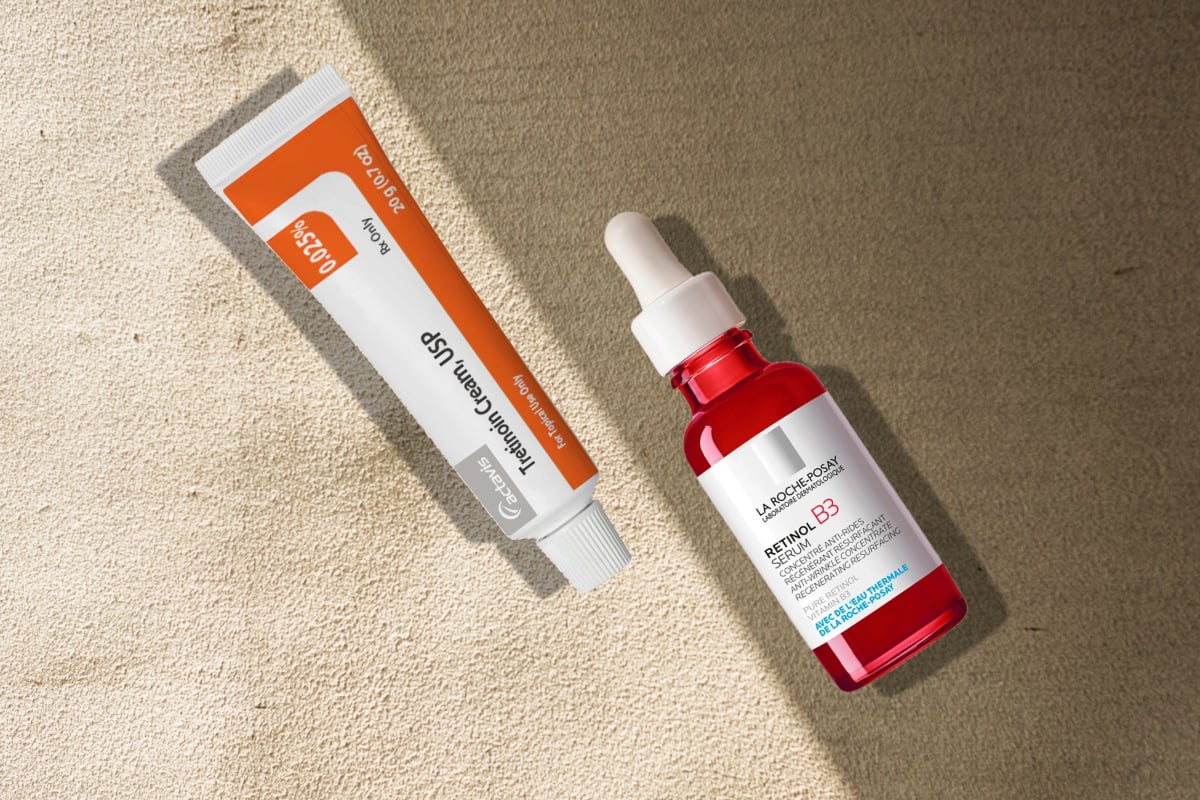When you were thinking you’ve learned the skincare dictionary for good, a new ingredient pops up. Epidermal growth factor (EGF) is not easy to understand, even the name sounds tricky. Wait, what? Can we apply something to the skin to make it grow? Not really, but close enough. EGF is naturally found in our skin and, in the last decade, has taken over the skincare world as a powerful anti-ager, fairly called the key to eternal youth. To get some intel on EGF skin benefits, I’ve turned to expert cosmetic chemist Luisa Fanzani and the founder of Luisa True Skincare.
What is the epidermal growth factor?
The epidermal growth factor is present in the body as a protein that serves as a cell-communicating messenger needed for firm, elastic skin. “EGF mediates signaling pathways that control cell growth, proliferation, and differentiation,” Luisa Fanzani says. “Among the vital cellular activities growth factor controls, there’s the formation of the extracellular matrix (ECM), which is responsible for skin’s structure and elasticity. In fact, the two main components of this matrix are collagen and elastin”.
With age and EGF levels decreasing, it leads to less collagen, which results in wrinkles and saggy skin. This is where the epidermal growth factor in skincare steps in.
How does epidermal growth factor work in skincare?
Despite the confusing name, the epidermal growth factor works as most of the other potent anti-agers out there (think retinol, vitamin C), just that it’s gentler — more on that later. So what does EGF do for skin? “Clinical studies have shown that EGF is able to reverse the effects of collagenases (i.e. the enzymes that break down collagen) while also increasing collagen production,” Luisa explains.
Furthermore, she describes that “In the case of wound healing, more collagen is necessary to repair the damaged tissues; in anti-aging skincare, more collagen is required to improve skin elasticity and reduce wrinkles. This is what potentially makes EGF a crucial weapon for anti-aging.” And how we love bouncy, plump skin, we’re about to make space in our skincare arsenals for one more ingredient. Aging signs or not, the epidermal growth factor is the new specialty in skincare.
How can we use EGF?
Injections aside, EGF is found in all sorts of products in skincare, especially serums, as these allow actives to better penetrate the skin for enhanced benefits. As for how to use EGF for skin, it mostly depends on the product at hand, but overall, EGF is gentle enough to be used daily.
However, Luisa points out some limitations on the topical use of EGF, yet she comes up with a solution to support you improve the results.
“When applied topically, it is of pivotal importance that the products that contain it are formulated in a way that allows EGF to penetrate the skin till the dermis — that’s where collagen production happens. The #1 limitation in using proteins like EGF topically is their size which makes skin penetration challenging. EGFs are also hydrophilic molecules that further impair their ability to penetrate the skin. Regardless, a limited yet solid amount of studies has shown the rejuvenating effects of these proteins.”
“A possible approach to increase the effectiveness of products containing EGFs is their application on vulnerable skin, for example, right after a microneedling or laser therapy session. This is because when the skin is compromised, it’s more likely to let molecules pass through it.”
Is EGF safe for skin?
Yes, EGF is safe for the skin. Due to its gentle profile and low penetration, EGF is unlikely to cause irritations or sensitivities.
Who should use EGF?
“All skin types can benefit from products containing EGFs although, of course, the main benefits are for older skin. As a general rule, oily skin might prefer to use EGF in the form of a lightweight, fast-absorbing serum, while dry skin might benefit more from a cream containing EGF,” Luisa explains. And now, is there anything we can not mix with EGF? “Proteins like EGF can be easily deactivated in an acidic environment. Therefore avoid using products with EGF together with AHA exfoliants like glycolic acid or vitamin C serums.”
Is EGF better than retinol?
With retinol being the gold standard for anti-aging, I reckon you wonder if EGF is better than retinol. I asked Luisa the hard question, and this is what she said: “Studies on EGF are not abundant and still in a preliminary stage. Conversely, retinol has a lot of supporting evidence for its anti-aging benefits. When properly formulated, retinol shows better chances of penetrating the stratum corneum, which is the part of the skin that acts as a barrier. However, EGF might be a better option for people who can’t tolerate retinoids and experience redness or irritation with them.”
Can you use EGF with retinol?
In the world of skincare cocktails, it’s fair to want to be aware of what ingredients we can and cannot mix. As such, can we use EGF with retinol? Here’s what Luisa answered: “Not only you can, you actually should use them together. Using different anti-aging ingredients (retinol, EGF, hyaluronic acid, antioxidants) that work with a different mechanism yet the same purpose is always your best bet for minimizing aging and achieving youthful-looking skin.”
Products with EGF
“EGF is an expensive ingredient because it’s difficult to obtain. Skincare products containing EGF have a higher price, especially if the brand has performed clinical studies to prove the product is effective,” tells Luisa.
“On the ingredients list, it can be recognized as sh-Oligopeptide-1 (peptides are fragments of proteins). These are some EGF-based products with clinical studies that support the anti-aging activity:”
- Bioeffect EGF Serum, view on Amazon.
- SkinMedica TNS Recovery Complex, view on Amazon.
- Neocutis Bio Serum Firm, view on Dermstore.
Or, you can pick one of these growth factor serums.




![Does resveratrol in red wine benefit your skin? While sipping on a glass of red wine can be a delightful experience, relying on it for skincare benefits is not the best idea. Sure, red wine contains a smidge of resveratrol, but let's put things into perspective. The concentration of resveratrol in red wine is relatively low. Red wines, specifically Pinot noir from France, typically contain 0.361-1.972 mg of resveratrol per liter.[8] To hit that reference dose of 500mg of resveratrol, you'd need to drink a lot of wine. We're talking about downing anywhere from 100 to 1000 glasses per day. It's a scene straight out of a wine lover's wildest dreams, but definitely not the healthiest approach. Resveratrol Benefits for Skin](https://womensconcepts.com/wp-content/uploads/2022/03/Resveratrol-Benefits-for-Skin.jpg)
